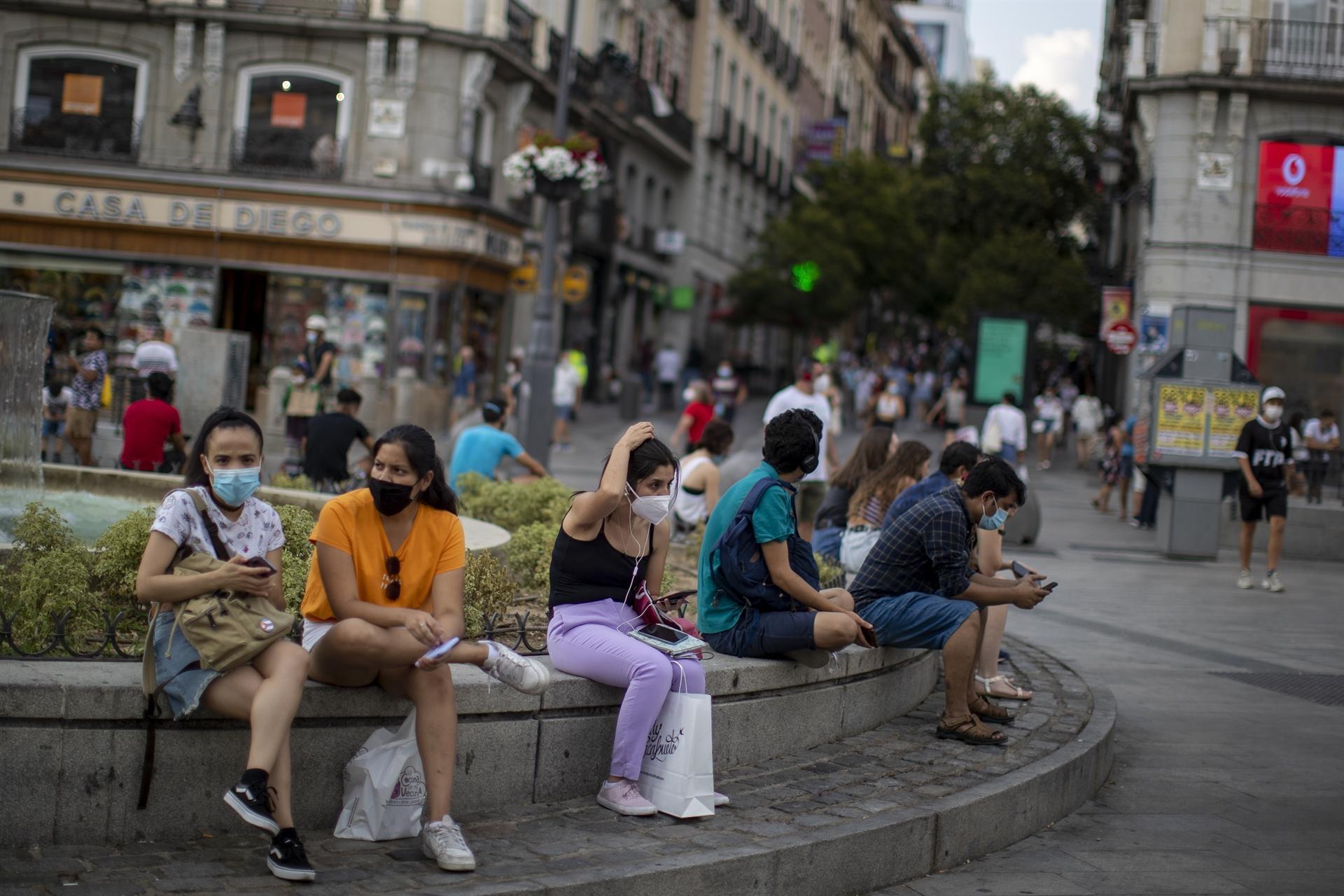
Spain and Germany were among the countries tightening restrictions on July 28 in a bid to cool coronavirus hotspots that have sparked fears of a second wave.
The World Health Organization warned that the virus did not appear to be affected by seasonality, as the global death toll from the pandemic passed 654,000 on July 28 - nearly a third of the dead in Europe, according to an AFP tally.
More than 100,000 deaths have been recorded since July 9 and the global toll has doubled in just over two months.
The UN's World Tourism Organization said the sector lost $320 billion in revenue globally during the first five months of 2020, threatening millions of livelihoods.
This is "more than three times the loss during the Global Financial Crisis of 2009", the Madrid-based body said in a statement.
The International Air Transport Association meanwhile warned that global air traffic would not return to levels seen before the coronavirus pandemic until at least 2024.
Spain, one of the countries hit hardest by the pandemic, insisted it was still a safe destination for tourists despite tackling 361 active outbreaks and more than 4,000 new cases.
Several countries have nonetheless imposed quarantines on people returning from Spain, including its biggest tourist market, Britain.
The strict lockdown in Spain destroyed more than a million jobs during the second quarter of the year, the National Statistics Institute (INE) reported on July 28 - mainly in tourism.
Germany, which has registered an average of 557 new cases a day over the past week, also tweaked its mask rules, saying they must be worn outdoors wherever social distancing was not possible.
"We must prevent that the virus once again spreads rapidly and uncontrollably," its disease control agency said on July 28.
Iran suffered its worst day yet of the pandemic, reporting 235 new deaths on July 28, a record toll for a single day in the Middle East's hardest-hit country.
"The situation is worrying," health ministry spokeswoman Sima Sadat Lari said, with Tehran, the most populous province, hitting the highest category on the country's coronavirus risk scale.
Officials have made masks mandatory in enclosed public spaces and allowed Tehran and other hard-hit provinces to reimpose the restrictions progressively lifted since April to reopen Iran's sanctions-hit economy.
Lebanon also raised fears for its crisis-hit health sector after recording 175 cases on July 25, its highest daily tally.
On July 28, it announced a full lockdown over the Muslim holiday of Eid al-Adha from July 30 until August 3, and limits on bar and restaurant capacity.
Twitter removed a video retweeted by President Donald Trump in which doctors made allegedly false claims about the pandemic, saying it was in violation of its "COVID-19 misinformation policy".
Earlier, Facebook had also withdrawn the video, which claimed masks and lockdowns were not necessary to counter the pandemic.
Florida's virus death toll passed 6,000 on July 28 as the disease claimed another 186 lives.
McDonald's meanwhile blamed coronavirus closures for a 68 percent drop in second-quarter profits to $483.8 million.
The virus continued to hit major sporting events, as Major League Baseball on July 28 shut down the Miami Marlins for the remainder of the week. Four more members of the virus-stricken franchise had tested positive for COVID-19.
And in American football, the New England Patriots' pre-season preparations were hit after six players opted out of the 2020 campaign over coronavirus fears.
The 2020-21 Belgian football season will begin behind closed doors following new measures announced by the government to stem a flare-up in coronavirus cases, the Pro League announced on July 28.
In China, officials moved to head off the possibility of a second wave after a new cluster in the northwest port city of Dalian spread to other provinces.
Health authorities said the Dalian cluster had now spread to nine cities in five regions across the country, including as far away as the southeast coastal province of Fujian.
Beijing has tightened measures in the affected region, introducing mass testing in Dalian and heightened scrutiny of travellers arriving in the city.
China had largely brought the virus under control since it first emerged in the country late last year, through a series of strict lockdowns and travel restrictions.
Greece said it would reopen six of its ports, including Piraeus in Athens, to cruise ships at the weekend. But responding to a recent rise in infections, it made masks compulsory again in shops and public services.
"Season does not seem to be affecting the transmission of this virus," WHO spokeswoman Margaret Harris told reporters.
It is summer in the United States, which with nearly 148,000 deaths and close to 4.3 million cases is the hardest-hit country.
It is winter in the second most affected country Brazil, which has recorded more than 87,000 deaths.
"What we all need to get our heads around is this is a new virus... and even though it is a respiratory virus and even though respiratory viruses in the past did tend to do these different seasonal waves, this one is behaving differently," Harris said.